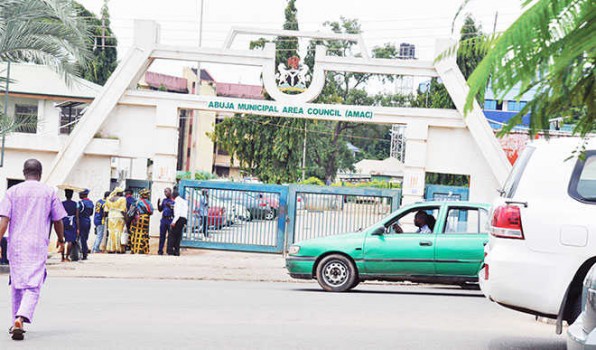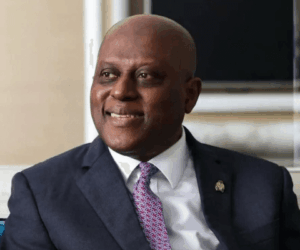Many residents of the Abuja Municipal Area Council (AMAC) have rejected the enforcement of television and radio sets tax by the area council authorities.
They described it as untimely, accusing the government of not being sensitive to the plight of the masses.
Some residents spoken to described the council’s action as inhuman amid the severe economic hardship in the country.
SPONSOR AD
Daily Trust reports that a demand notice from the area council was recently sent to some residents, requesting them to pay for the usage of these and other items in their houses and business premises.
Many residents shared the notice on their social media platforms, calling for a reversal of the policy.
The television tax
The controversy stems from the recently assented AMAC Radio and Television Licence By-Law (No. 19) of 2024.
The invoice, or notice of demand, sent to residents requests full payment within 21 days.
According to the notice, failure to comply is a punishable offence that could lead to arraignment at the magistrate’s court and the possible sealing off of the affected premises.
The new by-law mandates an annual license fee for anyone who owns or controls a radio, television, or “other items of the same or similar kind.”
The annual fees are categorised as follows: large banks and multinationals (Category B) are to pay N1,000,000 annually, medium-sized businesses (Supermarkets, hotels, and telecom companies – Category C) are to pay between N50,000 and N200,000 and residents (Duplexes, flats, bungalows, and self-contained apartments – Category D), who are to pay between N3,500 and N20,000 per dwelling.
Residents reject policy
A Cross-section of AMAC residents have demanded the stoppage of the tax policy, labelling it ill-timed.
Mr John Achungu, a business owner at the Central Business District, said he was shocked when the council’s revenue officers delivered the notice.
“Honestly, this is surprising! How can you ask me to pay for the television I’m using in my office or waiting room? What service are you rendering in that regard? Providing the signal for the TV or the electricity we are using to power it? I can’t really understand,” he lamented.
Mrs Zainab Muhammad, a food vendor in Wuse District, said her business was classified in Category C and she was asked to pay the required amount within 21 days or risk her business being sealed off.
“The same AMAC will bring the tenement rate, bring this, bring that; how many taxes are they going to collect from us? Honestly, this administration has been something else from the national down to the local,” she complained.
For Ifeanyi James, the new tax is targeted at further discomforting residents amid the economic crisis they are passing through. “They expect us to pay another tax to watch our stations even after we have paid service providers. They want us to even pay for listening to the radio. What is the difference between this and the radio license during the olden days?” he asked.
Samson Isah, a community leader in Jabi, described the tax policy as not only ridiculous but inhuman to many residents who are struggling to live.
“When one of my tenants told me about the demand from the AMAC, I did not believe her until the following day when she came with the demand notice from the area council,” he said.
Some other residents, who spoke with Daily Trust, called for an immediate review and possible suspension.
Toyin Ajayi, a public affairs analyst, demanded a public campaign to explain the necessity of the tax and what the generated revenue will be used for, rather than just issuing demand notices with threats.
He also stressed the need for a clear explanation of what constitutes “electronic devices” to prevent extortion and harassment by enforcement officers.
AMAC justifies levy
Meanwhile, the Abuja Municipal Area Council (AMAC) has justified the tax, saying it is constitutional and not new, as is been assumed in some quarters.
The Council’s Supervisory Councillor for Special Duties, Emmanuel Inyang, made the clarification in an interview with Daily Trust on Wednesday.
According to him, the taxation on radio and television ownership is supported by law and has long existed, even before the current administration came into office.
On why the council is enforcing the law now, Inyang said its enforcement had been relaxed until now due to the inactivity of previous consultants.
“The law allows the Area Council to collect revenue on radio and television. It has been there all this while, but maybe the consultant who was handling it before was not intensifying it like the present consultant,” he said.
Recognising that many residents are unaware of the tax, the councillor assured that AMAC will embark on an enlightenment campaign to inform and educate the public.
“There has to be enlightenment, that I can assure you,” he said, adding that the Chief Revenue Officer would soon appear on television and other media platforms to educate the masses.
“Quite a number of people are not even aware of this law.”
The supervisory councillor assured the residents that the funds generated from the tax would not be misappropriated but reinvested into the community.
In an earlier interview with a section of the media, Kingsley Madaki, the Senior Special Assistant on Media and Publicity to the AMAC chairman, explained that the radio and television licence has existed since the Micah Jiba-led administration in AMAC and is not a new item.
“It is under Section Four Schedule of the 1999 Constitution, and it is under Tax and Levy. So, it is not a new item introduced by this government; it has been there. Anybody who contravenes that section of our by-law shall be fined,” he stated.
“Our agents going round are meant to visit corporate and residential bodies to check and ensure that they pay accordingly. All corporate bodies are meant to pay the tax. If you have a radio or television, you must pay the license fee,” he added.
An official of the revenue department of the council, who spoke anonymously, promised that the council’s officers will be civil while enforcing the new tax regime, and noted that the law allows such officers to inspect premises within the council to determine who has such appliances.
Constitution provides for TV licence – Lawyers
Reacting, Dayo Akinlaja SAN said television licensing is one of the functions of local government areas in the country.
Akinlaja said the function was prescribed by the Fourth Schedule of the Constitution under ”collection of rates, radio and television licenses.”
Whether this is the same thing as a television tax may have to be decided by a court of law, he said.
Similarly, Abu Arome Esq said, “In Schedule 4 of the Constitution of the Federal Republic of Nigeria, specifically paragraph (b), the collection of rates and licensing in respect of radio and television is the exclusive preserve of the local government councils, and in the case of the FCT, the area councils, as they are called under the constitution.
“By this provision, other tiers of government are constitutionally precluded from collecting rates relating to the use of televisions and radios.”
On his part, EMD Umukoro Esq, said, “Indeed, the list is many, radio, bicycle, etc. However, the contemplation of television as it then was and the digital or smart TV of today are matters to be critically examined.
“Remember that some of these provisions were lifted from previous constitutions, which dispensation and level development had TVs with pole antennas connected to government-owned stations.
“In this era, there are a lot of advancements that make such enactments archaic. Therefore, such provisions should be expunged as they are capable of causing disaffection and giving rise to abuse and conflicts among citizens. It is not every legislation that is capable of enforcement.”








